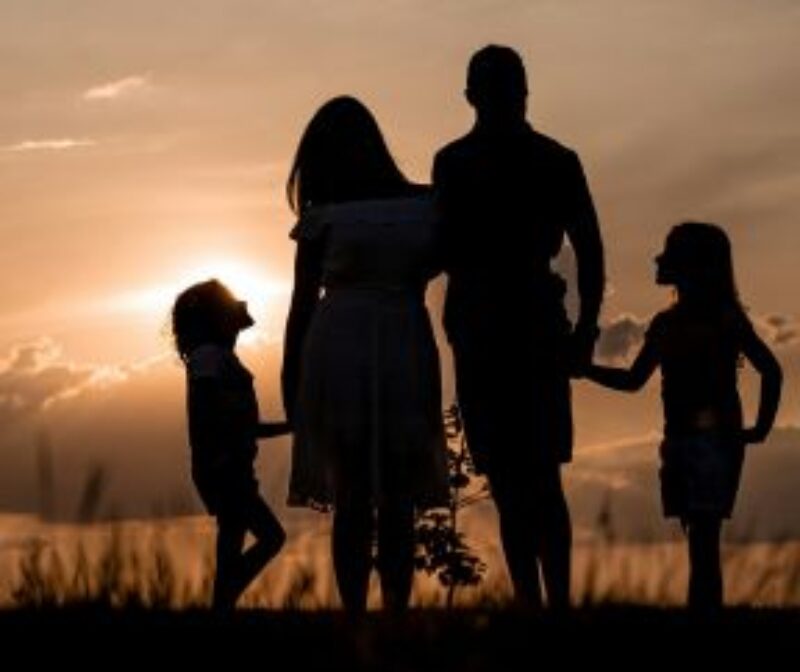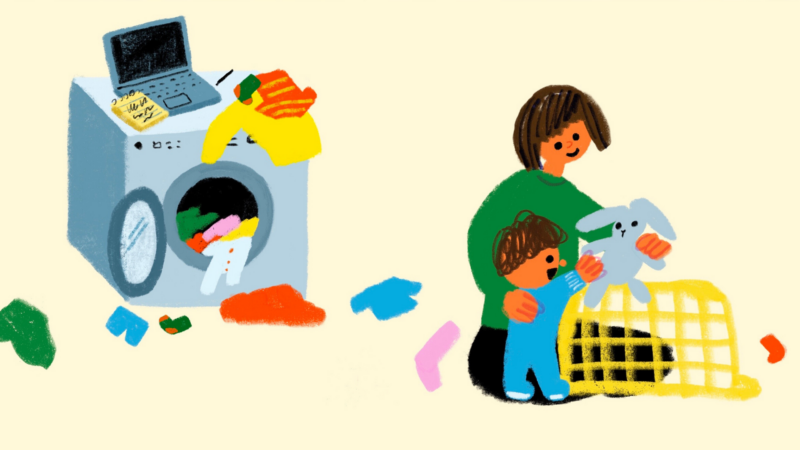Illustration by: Joanne Liu
A mother of a 4-year old shared with me recently: “I saw on social media, pictures of elaborate art projects that parents did with their kids. Instantly, I felt a punch to my gut. A voice whispers from inside that I am not doing enough.”
“Doing” Mode
As we enter the eleventh week of lockdown, the stress of wearing multiple hats has never been higher. If you are a working parent, you may feel the extra burden. Overnight, you are thrust into unfamiliar territory, having to juggle daily between work, parenting, home schooling, on top of cooking, cleaning, and shopping.
At the same time, you may be bombarded with implicit messages of things you can do more or better. A couple times a week, I receive emails from teachers on ideas to stimulate learning and development for my kids. Each message feels like a reminder of what my kids are missing out, because I do not have the bandwidth to create and sustain these learning experiences.
These messages may go the other way. I recently came across a post by a working mother who shared tips on how she remained productive at work. Her secret? Refrain from any cleaning or tidying. Immediately, I felt insecure. Am I wasting too much time cleaning my house? Is that why I have been so unproductive?
It is easy to compare, and we always fall short. We can always do more, do better, or be more productive. But that creates a sense of exhaustion. The to-do list is never-ending. As soon as one task is complete, another appears.
When we are in the “doing” mode, it is hard to focus in the present moment. Our minds naturally go to the future and to the things that are yet to be done. Even when we are physically with our children, our mind may be elsewhere. This limits our ability to connect with our children.
What does it mean to thrive as parents during the pandemic?
Being vs. Doing
Mindful parenting introduces a different approach. It is less about doing, and more about being. Mindfulness is paying attention to the present moment and without judgment. Mindful parenting is taking on that approach and applying it to your everyday interactions with your children.
It means being fully present with your children – in their joys and pains, struggles and successes, big and small emotions – not necessarily having all the answers, but choosing to show up as best as you can in that particular moment.
Parenting is first and foremost relational. Parenting is less about “doing all the right things” than connecting authentically with your children. Children are like sponges. They model after our behaviors. They also absorb our emotions – both pleasant and unpleasant ones.
A couple months or years from now, when the pandemic passes and things return to “normal,” your children may not remember the specific activities. They will, however, remember how you interacted with them and how they felt during this time. (Similar to when you recall your favorite childhood teacher. The specific events may fade, but the kind of person they are is forever imprinted in your mind.)
The Gift of Yourself
Mindful parenting means meeting your children where they are at any given moment. It means holding their emotions, listening empathically, and remaining fully engaged as best as you can even when you do not have all the answers. It means recognizing – not just in your head but also in your heart – that you as parents have limits and you are not perfect. It means extending and receiving grace, over and over, from your children.
All this requires space and intentionality. While there are techniques or strategies involved (which I will share more in another post), ultimately you are offering your children the gift of yourself. You gift them with who you are – no more, no less.
To show up simply as who you are is difficult. It is even more difficult when we are collectively going through a dark season, and when your stress level is likely much higher. You cannot give meaningfully or authentically when your margins are thin.
Creating Space as a Prerequisite
One tip I will share today is the importance of creating space from within. Think of this as a prerequisite to mindful parenting.
Creating space from within may look differently for different people. It may take the form of daily meditation or 10 minutes set aside for reflection. It may also mean intentionally carving out time to exercise, journal, surround yourself with beauty, or do something that nourishes your soul. For some of you, it may mean gaining greater awareness of your emotions and how they may affect you and others. And for others, it may mean radically adjusting your expectations and standards, letting certain things go, simply so that you can remain sane.
There are no universal ”Steps 1, 2, 3” in embracing mindful parenting. The goal is to be authentic, and it requires self-understanding and self-awareness. As we create more space from within, we strive to be more thoughtful, and less reactive, in how we respond to our children (and our loved ones).
Continue Exploring

Resilience
Building Family Resilience
Can studying missionary families teach us about building resilience in our own families? Thrive Fellow, Abby Schmidt explains her findings.

Practices
A Practice: Courageous & Curious Conversations toward Mutuality
When seeking mutuality in relationships, courageous and curious conversations are necessary. Here's a practice to guide you.

Practices
Power Dynamics in Relationships
Power dynamics affect how we engage with our loved ones. Learn how to get curious and courageous to develop mutuality in relationships.

